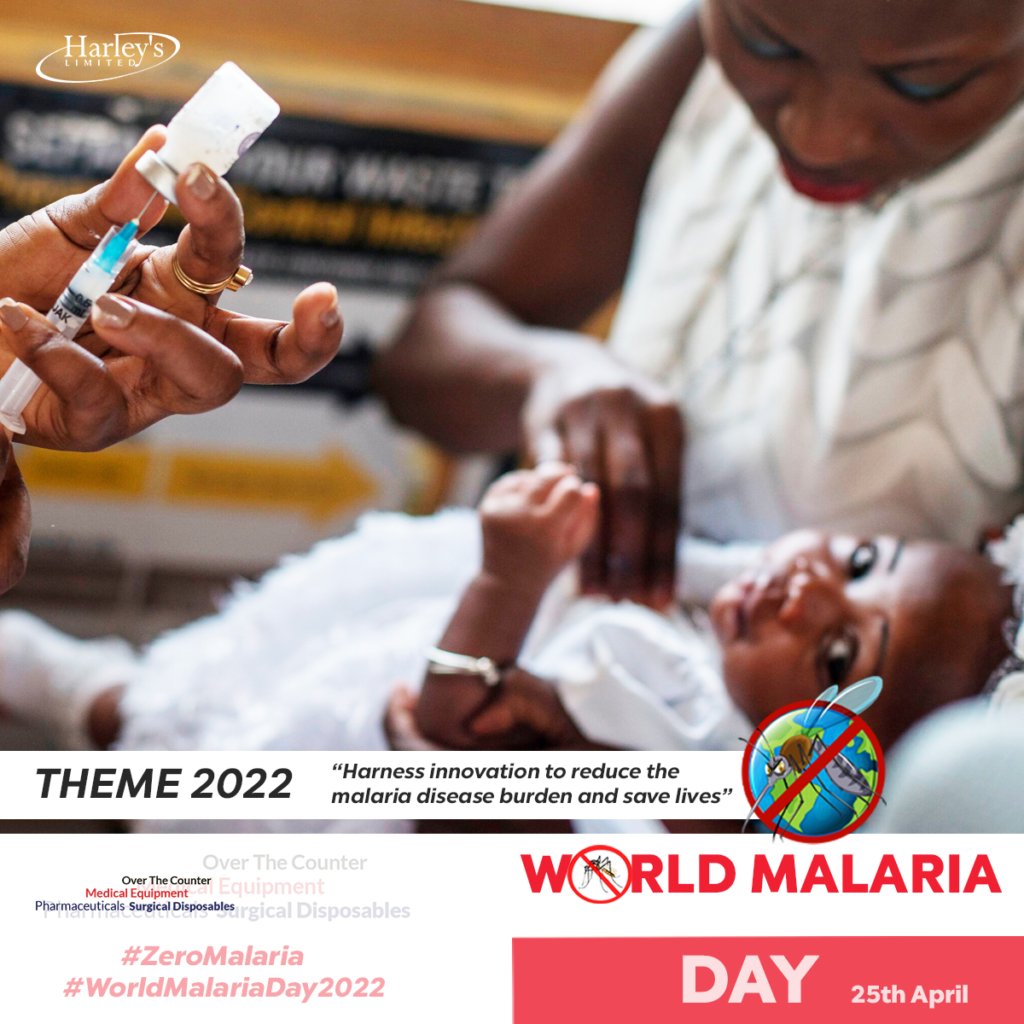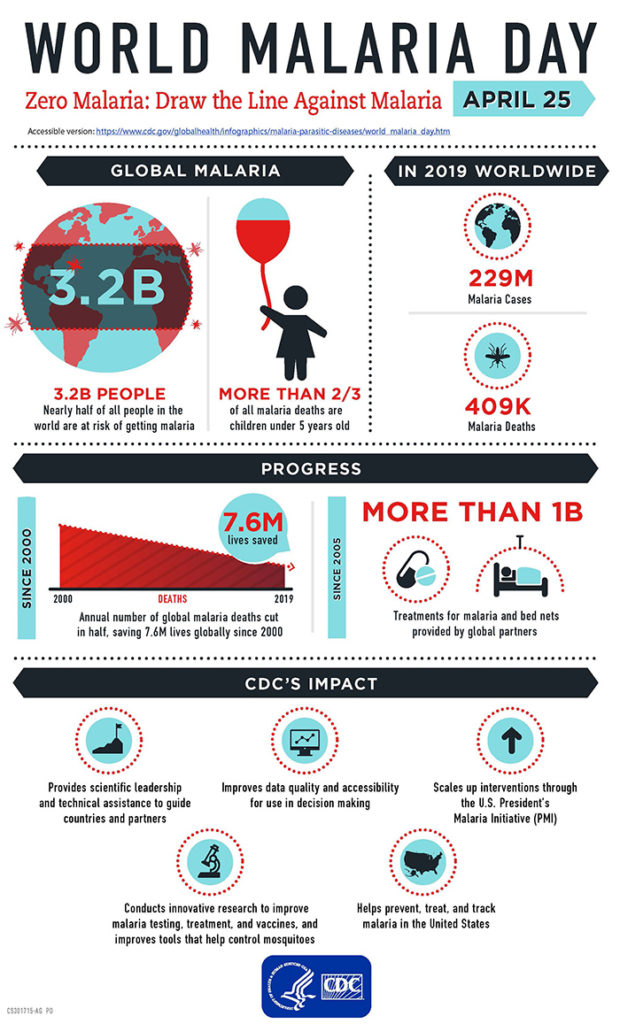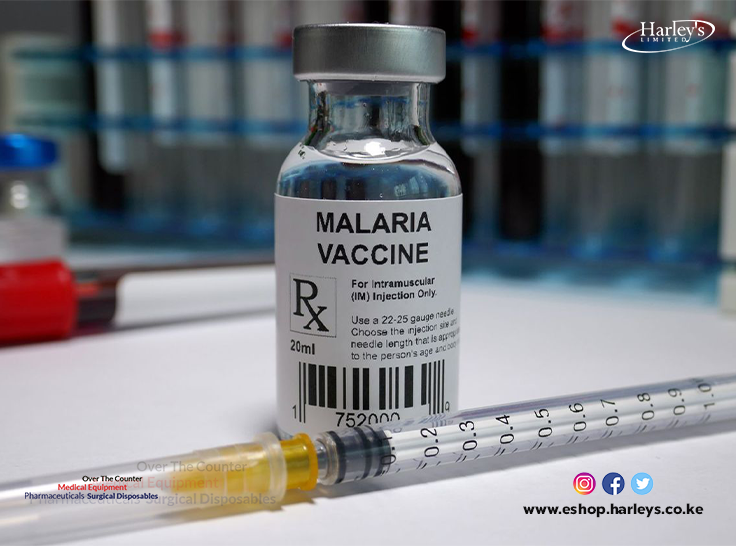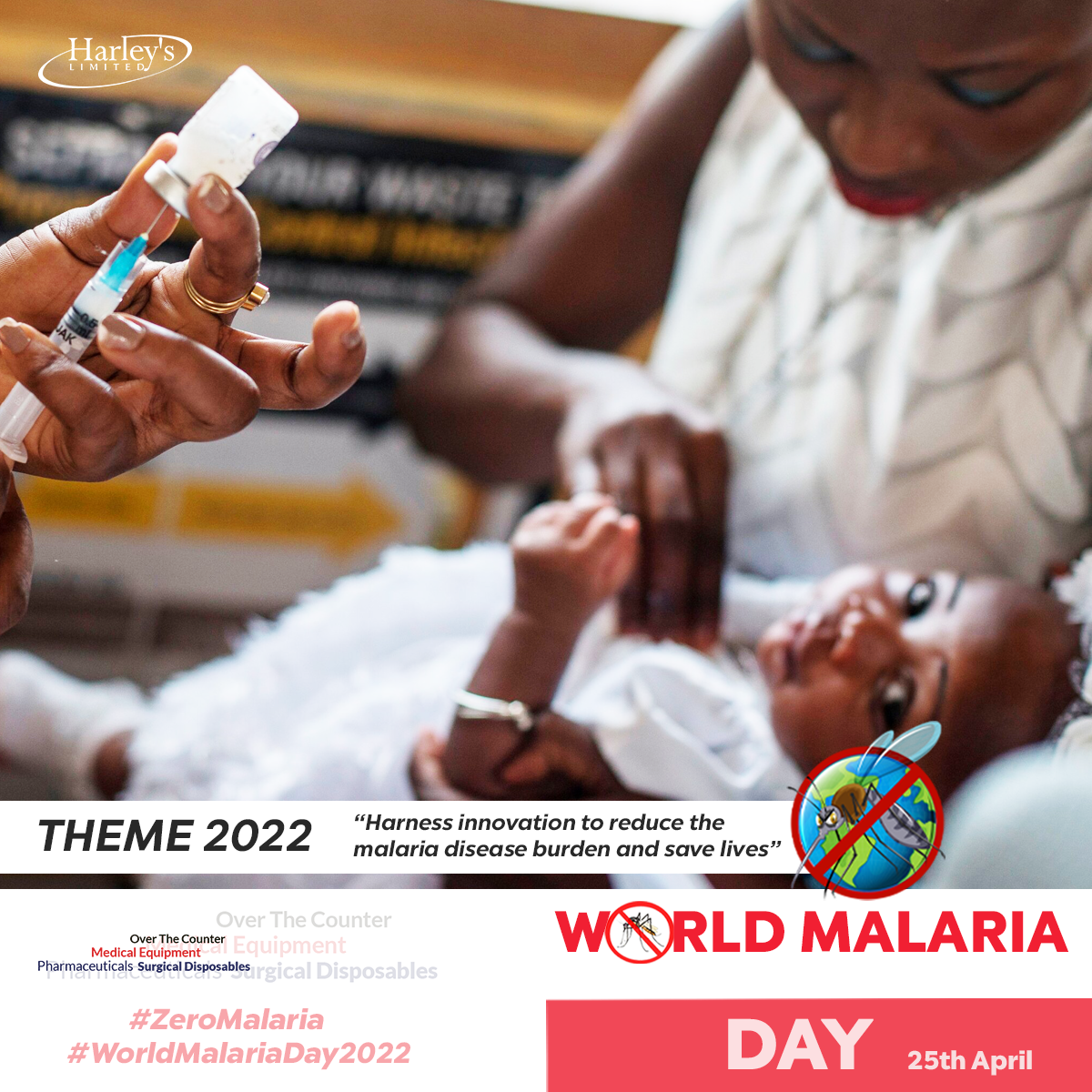World Malaria Day is marked annually on 25th April to focus global attention on malaria, and its devastating impact on families, communities and societal development, especially in Sub-Saharan Africa.

This year’s theme, “Harness innovation to reduce the malaria disease burden and save lives”, requires us to urgently scale up innovation and the deployment of new tools in the fight against malaria, while advocating for equitable access to malaria prevention and treatment, within the context of building health system resilience.
What is Malaria?
Malaria is a disease caused by a parasite. The parasite is spread to humans through the bites of infected mosquitoes. People who have malaria usually feel very sick with a high fever and shaking chills.
According to The World Health Organisation, Malaria is a preventable and treatable disease that continues to have a devastating impact on the health and livelihood of people around the world. In 2020, there were an estimated 241 million new cases of malaria and 627 000 malaria-related deaths in 85 countries. More than two thirds of deaths were among children under the age of 5 living in the WHO African Region.

To reduce malaria infections, world health programs distribute preventive drugs and insecticide-treated bed nets to protect people from mosquito bites. WHO has recommended a malaria vaccine for use in children who live in countries with high numbers of malaria cases.

Protective clothing, bed nets and insecticides can protect you while traveling. You also can take preventive medicine before, during and after a trip to a high-risk area. Many malaria parasites have developed resistance to common drugs used to treat the disease.

Some people who have malaria experience cycles of malaria “attacks.” An attack usually starts with shivering and chills, followed by a high fever, followed by sweating and a return to normal temperature.

Source: World Health Organisation (2022)
Malaria signs and symptoms typically begin within a few weeks after being bitten by an infected mosquito. However, some types of malaria parasites can lie dormant in your body for up to a year.
When to see a doctor
Talk to your doctor if you experience a fever while living in or after traveling to a high-risk malaria region. If you have severe symptoms, seek emergency medical attention.
Reference
Centre for Disease Control and Prevention (CDC). (2022). Retrieved 25 April 2022, from https://www.cdc.gov/malaria/about/faqs.html#:~:text=Malaria%20is%20a%20serious%20and,humans%3A%20Plasmodium%20falciparum%2C%20P
Mayo Clinic (2021). Retrieved 25 April 2022, from https://www.mayoclinic.org/diseases-conditions/malaria/symptoms-causes/syc-20351184
World Health Organisation (WHO). (2022). Retrieved 25 April 2022, from https://www.who.int/campaigns/world-malaria-day

